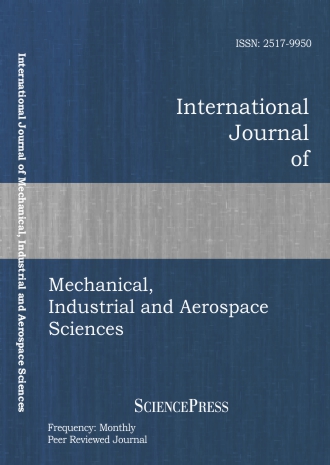
Scholarly
Volume:6, Issue: 2, 2012 Page No: 415 - 420
International Journal of Mechanical, Industrial and Aerospace Sciences
ISSN: 2517-9950
1289 Downloads
A Flexible Flowshop Scheduling Problem with Machine Eligibility Constraint and Two Criteria Objective Function
This research deals with a flexible flowshop scheduling problem with arrival and delivery of jobs in groups and processing them individually. Due to the special characteristics of each job, only a subset of machines in each stage is eligible to process that job. The objective function deals with minimization of sum of the completion time of groups on one hand and minimization of sum of the differences between completion time of jobs and delivery time of the group containing that job (waiting period) on the other hand. The problem can be stated as FFc / rj , Mj / irreg which has many applications in production and service industries. A mathematical model is proposed, the problem is proved to be NPcomplete, and an effective heuristic method is presented to schedule the jobs efficiently. This algorithm can then be used within the body of any metaheuristic algorithm for solving the problem.
Authors:
References:
[1] M. Pinedo, Scheduling Theory, Algorithms, and Systems. 3rd Edition,